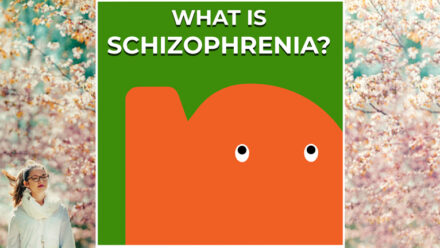
Individual health context, what is meant by this? Jim van Os writes about mental health care and general health: “In today’s high-income countries we are seeing an intriguing phenomenon. Though life expectancy keeps going up, a healthy life expectancy is paradoxically reduced. How can we explain this?”
Individual health context
Medical practice contributes to a meaningful existence. Modern medicine has undoubtedly brought us technological marvels. Organ transplants, complex surgical procedures, and advanced medicines have saved many peoples’ lives and have prolonged life expectancy. However, it seems like we have forgotten something crucial along the way: the personal context of the individual’s health.
The medical world, though admirable for its pursuit of perfection, has been mainly focused on disease control. What is often overlooked, is how medical treatment can contribute to a meaningful existence for the person in question. Essentially, meaningfulness is inextricably connected to someone’s health, according to the concept of positive health.
More like a human being, less like a patient
According to the Dutch Patient Federation, who I tend to believe, their vision is crystal clear: “more human being, less patient.” This approach acknowledges that health is not just the absence of disease, but a holistic well-being that goes beyond the physical as well. It’s about making life meaningful. In the moral age of medicine it shouldn’t just be about battling disease, but about adding meaning to peoples’ lives too.
Individual health context: what does this mean for mental health care?
The same problem exists in this field, and to an even greater extent. Both psychology and psychiatry within the care sector have distanced themselves from the concept of mental health. Instead, they mainly focus on fighting the symptoms that are considered indicative of illness, as defined in the DSM-5 (Diagnostic and Statistical Manual of Mental Disorders), the “bible” of psychiatry.
The mental health care sector has a very limited picture of mental health
They simply consider it the absence of symptoms of illness. We can’t make any more sense of it. We find mental health complicated, because we can’t just measure it. We don’t understand the conscience, so we made up illnesses with symptoms we can recognise, and which can be treated using evidence based guidelines. But is this really the best we can do?
Individual health context: We can and should achieve more
‘The good life’ according to mental health is a type of mental balance, where an individual’s mental space is in harmony with their surrounding.
This is a concept that deserves our full attention
We urgently need to focus on a more usable and inspiring understanding.
To achieve this, we have to think deeper about what experience really is, and how we can become aware of our experiences, including the painful ones. This requires a radical review of our current methods and approaches, but I believe an individual health context is possible and necessary.
Think along and continue the discussion!
In the near future I will deepen this thought and explore with you the words and concepts that are needed to redefine our notion of mental health. We won’t shun the consciousness when doing this.
Until then, I challenge you to think about this subject and continue the discussion. Together we can make a difference and shift the focus to what it is really about: Individual health context. The experiencing human being behind the patient.





Comments: